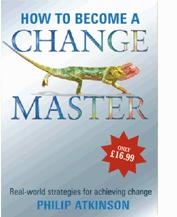
You do not need a degree to get a good job? There is a great deal of contrary information. For instance, Elon Musk, founder of X.com, which became PayPal, Tesla and SpaceX believe there are many other routes to greatness besides College. The founders of Apple, Google, IBM., Microsoft and Facebook, were all dropouts. Not having a robust tertiary education never stood in Steve Job's way. Today, Google does not care about your completion of a degree. They care about your Mindset and what you can contribute. According to Inc magazine, Google's new certification of competencies takes only six months to complete and will be a fraction of the cost of College.
Likewise, Microsoft wants to employ those people who are adaptable, flexible, quick learners, creative and work well in a team.
Mindset vs. Rigidity
I am not sure that University or College provides you with the right Mindset and meta-skills for business. In many ways, College teaches you the opposite. I know because before I left many years ago to start my creative consulting firm, I was a Senior Lecturer in two business schools in tertiary education in Scotland for eight years.
My view is that College teaches us to fit into a box and conform. It does not inspire creativity and innovation because of adherence to old tired curricula geared more to the needs of yesterday than the demands of tomorrow and constrains. Careers guidance is still lacking and not a priority in many of these institutions.
Post-COVID Futures
University does not teach you confidence, influence or how to work well with others. Post-COVID students face a depressing future and are due to inherit an empty promise. I cannot see how College is preparing to give their 'customers' or 'clients' (students) the basics of managing your life and career, working with others, how best to present yourself and learning how to resolve conflict. It appears to me that the 'academic experience' is content, rather than process, driven.
Learning to learn is the critical 'process'
College or University should be providing a robust platform upon which to shape life long learning. Our understanding when we talk to recruiters looking for high calibre people, is that College turns out students who have varying degrees of content and knowledge but fails to develop the meta-skills: of critical reasoning and thinking, creative problem solving, influencing and building teams, leading research on 'unknown – unknowns', and working well with others.
The tertiary education system needs rebuilding – especially with the considerable investment required to attend increasing enormously.
When we get to the Post pandemic society, learners will think differently about the choice of going to College or University to study. I mean, is it worth it? Do the benefits of attending prepare you for life in a post COVID world? Is associating with the same people (aged mostly 18-22) preparing you to work in a diverse and ever-changing business world. There are much better alternatives to follow.
Myth: attend College or University, and the World becomes your oyster
Try telling that to the 27-year-old who spent four years at University and now has £55K debt that she will not pay off for years. What is worse is she did not get the job of her dreams. BTW, neither do most students who finish their degrees. Less than 30% of those who have studied specific subjects land a job in their favoured or a related field.
A friend spent four years studying languages, and now by default has ended up in a Promotions business. Has she been prepared for the changing role of business as the speed of business and societal change accelerates? How many others leaving College to end up in similar positions they would not have chosen for themselves?
Fit for Purpose
I have to ask, is tertiary education fit for purpose and does it equip people for the emerging World. I am convinced that the author Robert T. Kiyosaki got the theme right in his series of books 'Rich Dad, Poor Dad' – you have to prepare and take charge of your future, and position yourself in his Cashflow Quadrant. His thesis is that traditional University or college education is not always an excellent grounding or platform for shaping roles and careers in the new emerging World. It was fine when futures were predictable, but we have lived in an unpredictable and uncertain world since the 80s. Isn't it about time that we prepare people for living and surviving in it? There are alternatives, and one of these is turning learning, rather than education, right on its head.
Mindset more critical than the traditional curriculum
Of course, students of all ages need some degree of technical input to do their job in their desired field. That is probably more prevalent in the physical or analytical sciences and the professions and perhaps less relevant in the arts and social sciences. We believe that academic content has been ranked higher in importance to eclipse the importance of creating a flexible Mindset and acquiring the ability to 'Learn to Learn.'
Debt is now a significant unintended outcome of 4 years study
How many have had their ambitions thwarted? Graduating students may have the hard choice to pay off the growing debt while still looking to acquire a mortgage. There is no choice at all. It will constrain and inhibit personal growth and ambition. How can they motivate themselves to overcome these financial barriers? Now, even fewer young people will have the ability to enter and move up the housing ladder. So, there must be alternatives to College as the only route to advancement.
What is the purpose of College or University?
I want to think it has to do with learning and applying expertise and knowledge in your chosen field. But currently, the way we do things does not always lead to learning. I believe very few students think their investment of between £9 - 12K per year is well rewarded with a lacklustre education comprising of Zoom calls and on-line learning. Goodness knows 'how hands-on' professions like Medicine, Nursing, Physiotherapy, Dentistry etc. are going to acquire their expertise if these passive processes (Zoom and on-line learning) become the medium for conveying knowledge and expertise.
If you would like to find out more of the alternative – email me at [email protected]
 RSS Feed
RSS Feed

